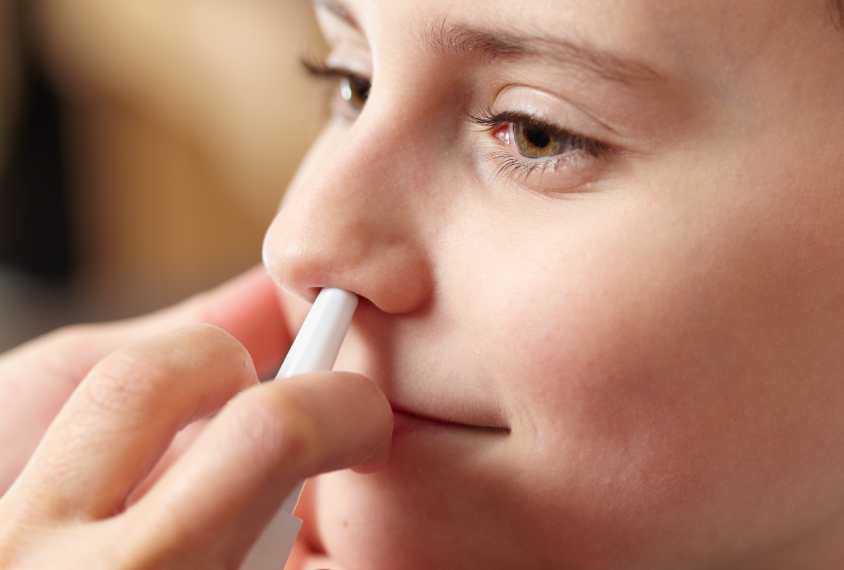
Catalin Petolea / shutterstock
Oxytocin spray boosts social skills in children with autism
A small clinical trial shows that treatment with the hormone oxytocin improves social skills in some children with autism.
Treatment with the hormone oxytocin improves social skills in some children with autism, suggest results from a small clinical trial. The results appeared today in the Proceedings of the National Academy of Sciences1.
Oxytocin, dubbed the ‘love hormone,’ enhances social behavior in animals. This effect makes it attractive as a potential autism treatment. But studies in people have been inconsistent: Some small trials have shown that the hormone improves social skills in people with autism, and others have shown no benefit. This may be because only a subset of people with autism respond to the treatment.
In the new study, researchers tried to identify this subset. The same team showed in 2014 that children with relatively high blood levels of oxytocin have better social skills than do those with low levels2.
In their new work, the researchers examined whether oxytocin levels in children with autism alter the children’s response to treatment with the hormone. They found that low levels of the hormone prior to treatment are associated with the most improvement in social skills.
“We need to be thinking about a precision-medicine approach for autism,” says Karen Parker, associate professor of psychiatry at Stanford University in California, who co-led the study. “There’s been a reasonable number of failed [oxytocin] trials, and the question is: Could they have failed because all of the kids, by blind, dumb luck, had really high baseline oxytocin levels?”
The study marks the first successful attempt to find a biological marker that predicts response to the therapy.
“This study is suggestive of a hormonal-based biomarker for oxytocin treatment, which makes sense and is a promising step forward,” says Adam Guastella, professor of psychology at the Brain and Mind Centre at the University of Sydney in Australia, who was not involved in the study.
Hormone help:
The researchers enrolled 34 children with autism, aged 6 to 12 years. Parents gave their children a nasal spray twice a day for four weeks; 16 children got a spray containing oxytocin, and 18 got a spray with placebo. (Two of the children in the oxytocin group later dropped out of the study.)
The researchers measured oxytocin levels in the children’s blood at the start and end of the trial. They assessed the children’s social skills using a parent questionnaire called the Social Responsiveness Scale (SRS) and used other tests to assess the drug’s effects on repetitive behaviors and anxiety levels.
Based on SRS scores alone, oxytocin treatment did not lead to a statistically significant improvement in social skills. But when the researchers built a statistical model that accounted for the children’s oxytocin levels at the trial’s start, they found that the children who received oxytocin improved more on the SRS than did those on the placebo. The children with the lowest initial blood levels of oxytocin generally showed the most improvement.
Some children who received the placebo also showed an improvement in their social skills. These children also showed a rise in oxytocin levels over the course of the study. This indicates that simply participating in the study boosted their oxytocin levels, and may underlie their improvement, Parker says. Boosting oxytocin levels in other ways — say, through a behavioral intervention — could also be beneficial, she says.
The treated children showed no decrease in repetitive behaviors or anxiety, suggesting that the findings are specific to social skills. The therapy had no serious side effects.
Looking ahead:
Oxytocin levels vary naturally among people, and may even change throughout the day. The researchers tried to mitigate some of this variability by drawing each child’s blood at roughly the same time each day.
Still, the change in oxytocin levels in the placebo group could be a result of natural variation and might not be meaningful, says Linmarie Sikich, associate director of the Duke Center for Autism and Brain Development in Durham, North Carolina, who was not involved in the study.
Researchers also note that the trial did not assess oxytocin’s long-term effects. “Should oxytocin be found effective, no one is going to use it for four weeks and stop. We have to make sure that long-term administration is safe,” says co-lead researcher Antonio Hardan, professor of psychiatry and behavioral sciences at Stanford University.
Confirming oxytocin’s effectiveness as an autism treatment requires larger, longer-term studies. With that goal in mind, Sikich and her colleagues have enrolled nearly 300 people with autism in a placebo-controlled 24-week trial of the hormone. The placebo and treatment groups will then receive treatment for another six months.
The team is measuring the participants’ blood levels of oxytocin before, during and after treatment. They are also monitoring factors that alter the expression of the oxytocin gene, and of other genes involved in the same pathway.
References:
Recommended reading

New organoid atlas unveils four neurodevelopmental signatures
Explore more from The Transmitter
Snoozing dragons stir up ancient evidence of sleep’s dual nature

The Transmitter’s most-read neuroscience book excerpts of 2025


